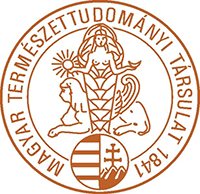Dear Colleagues,
We would like to call your attention for the first online event of our webinar series – ‘Peripheries in the post-crisis Europe – A Central and Eastern European view’ – on 18th of May, 2021, from 16:00.
The event is free, but it requires a registration. Url to the registration:
https://forms.gle/cHQST5u1CVU72JZQ6https://forms.gle/cHQST5u1CVU72JZQ6
The event will be in Zoom.
The event is organised by the Economic Geography Research Group, Hungarian Academy of Sciences, X. Section of Earth Sciences, Division of Human Geography, Hungarian Geographical Society, and the Unit of Economic Geography, Corvinus University of Budapest. Url to the facebook event:
https://www.facebook.com/events/462781338362962https://www.facebook.com/events/462781338362962
This is the first event of an online discussion series focused on post-crisis economic recovery and the (re)production of new inequalities in Central and Eastern Europe (CEE), organised by the Economic Geography Research Group, Hungarian Academy of Sciences.
The discussion addresses ‘real-world’ processes of peripheralization, peripherality as a lived experience, and also as a condition to study socio-spatial inequalities:
- What new processes have emerged since the 2009/11 global economic crisis in the eastern periphery European?
What new patterns of inequalities are taking shape at European and subnational scales? How has the meaning of ’peripherality’ as a structural position and a ‘lived’ everyday reality changed since the crisis? What agencies are at work in peripheral spaces to get rid of old and newly emerging dependencies? - What are the perceptions on the position of CEE research/ers in knowledge production on spatial inequalities?
In what ways can CEE-focused studies contribute to ongoing debates on peripheralization? How could CEE research(ers) contest pre-defined categories and their binary logics, such as core/periphery, East/West, post-socialist (as other to the western core)? What do we have to replace them? What practices/methodologies should we mobilise to develop alternative (or heterodox) theorizations of peripheralization and peripherality?
The talk involves three speakers from different contexts, all engaged in studying peripheralization processes in East-Central Europe:
- Lela Rekhviashvili, post-doctoral researcher at Leibniz Institute for Regional Geography (IfL), Leipzig/Germany; focusing on political-economy and urban geography with a regional expertise in post-socialist Central and Eastern Europe and Eurasia, at Leibniz Institute for Regional Geography, Leipzig. She has published widely on informal economic practices, urban transport and mobility, marketization and social embeddedness, contentious action and politics of public space. As an invited lecturer at Universities of Halle and Leipzig she teaches on ‘Regional Geography of Post-Soviet Eurasia’ and ‘De/constructing Europe: Multiple perspectives on Europeanisation’. She serves as one of the coordinators of research area ‘Self-Positioning of Eastern Europe in a New World Order’ at Leibniz Science Campus »Eastern Europe – Global Area« (EEGA).
- Bianka Plüschke-Altof is a Researcher in Environmental Sociology and Human Geography at the School of Natural Sciences and Health at Tallinn University in Estonia. A dominant theme in her research relates to questions of socio-spatial and environmental justice in Central and Eastern Europe. Her most recent focus lies on spatial injustices arising from human-nature relations in the city.
- Thilo Lang is Head of Department at the Leibniz Institute for Regional Geography (IfL), Leipzig/ Germany; and lecturer at the Global and European Studies Institute at the University of Leipzig. He is a member of the Collaborative Research Centre 1199 “Processes of Spatialisation under the Global Condition” and directs the research group “Multiple Geographies of Regional and Local Development” at IfL. His research interests include polarisation processes at multiple scales, innovation outside of agglomerations, local and regional development with a focus on institutional change in ‘peripheral’ regions and alternative economies.
- The event will be moderated by Erika Nagy, geographer, senior research fellow, Centre for Economic and Regional Studies, Institute for Regional Studies, Békéscsaba/Hungary; head of economic Geography Research Group; lecturer at the Institute of Geoscience, University of Debrecen.
Thank you very much if you extend the invitation via your professional contacts.
We hope that you will find the event interesting and join us.
All the best,
The Organizers







